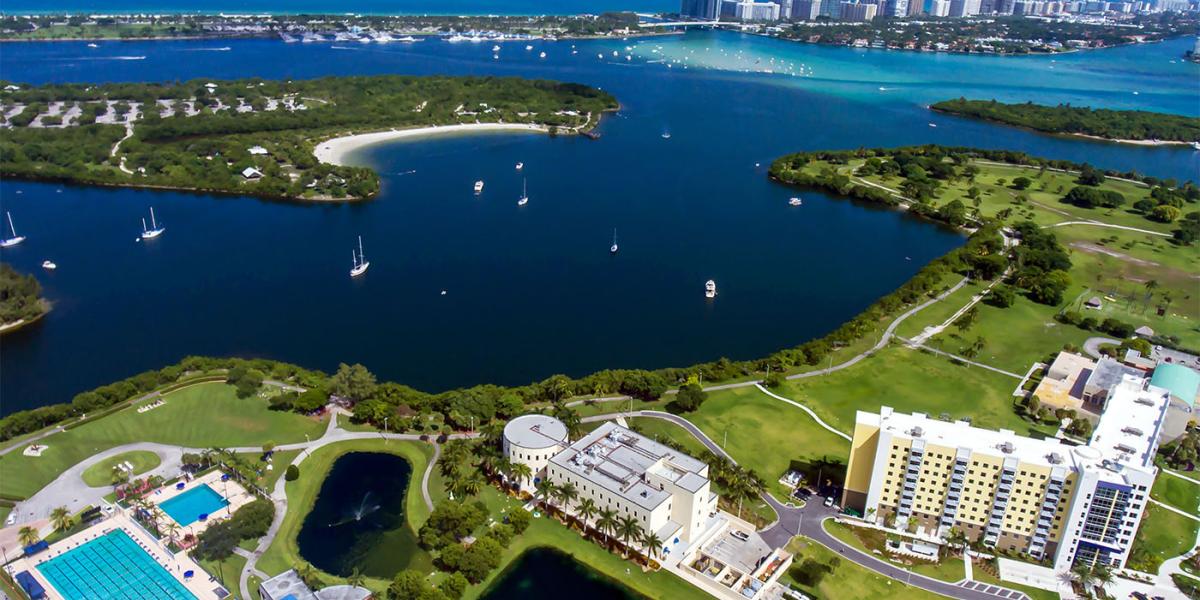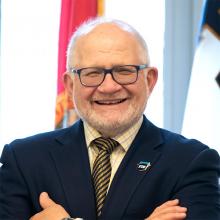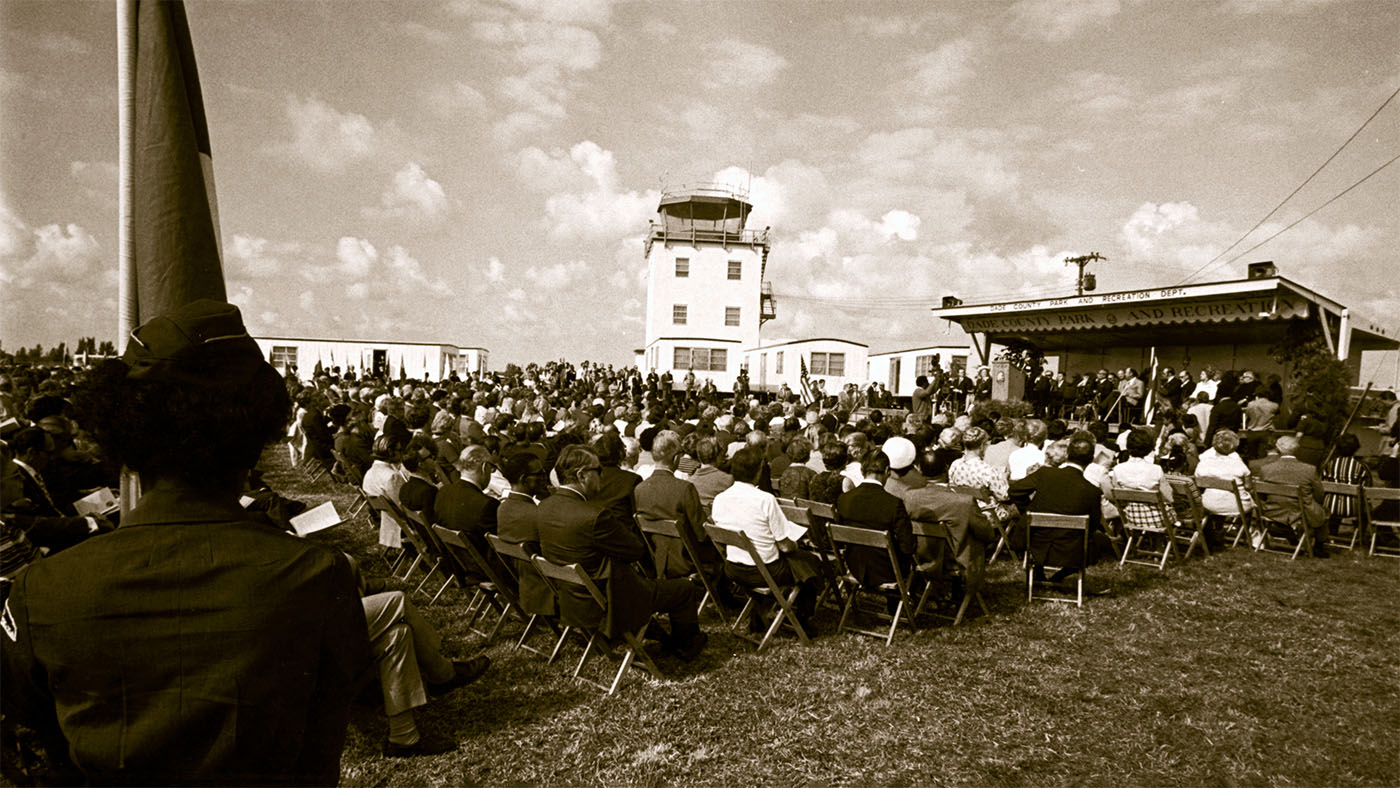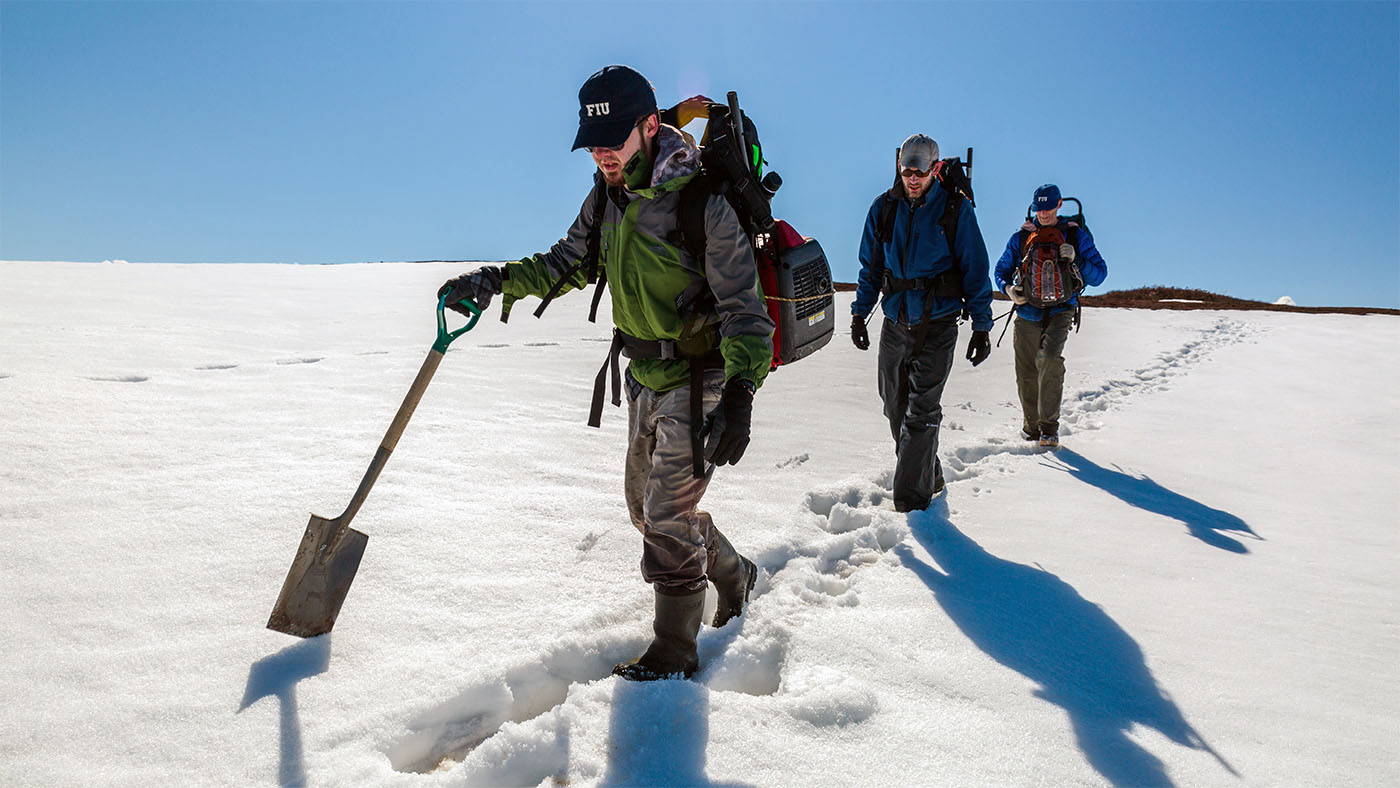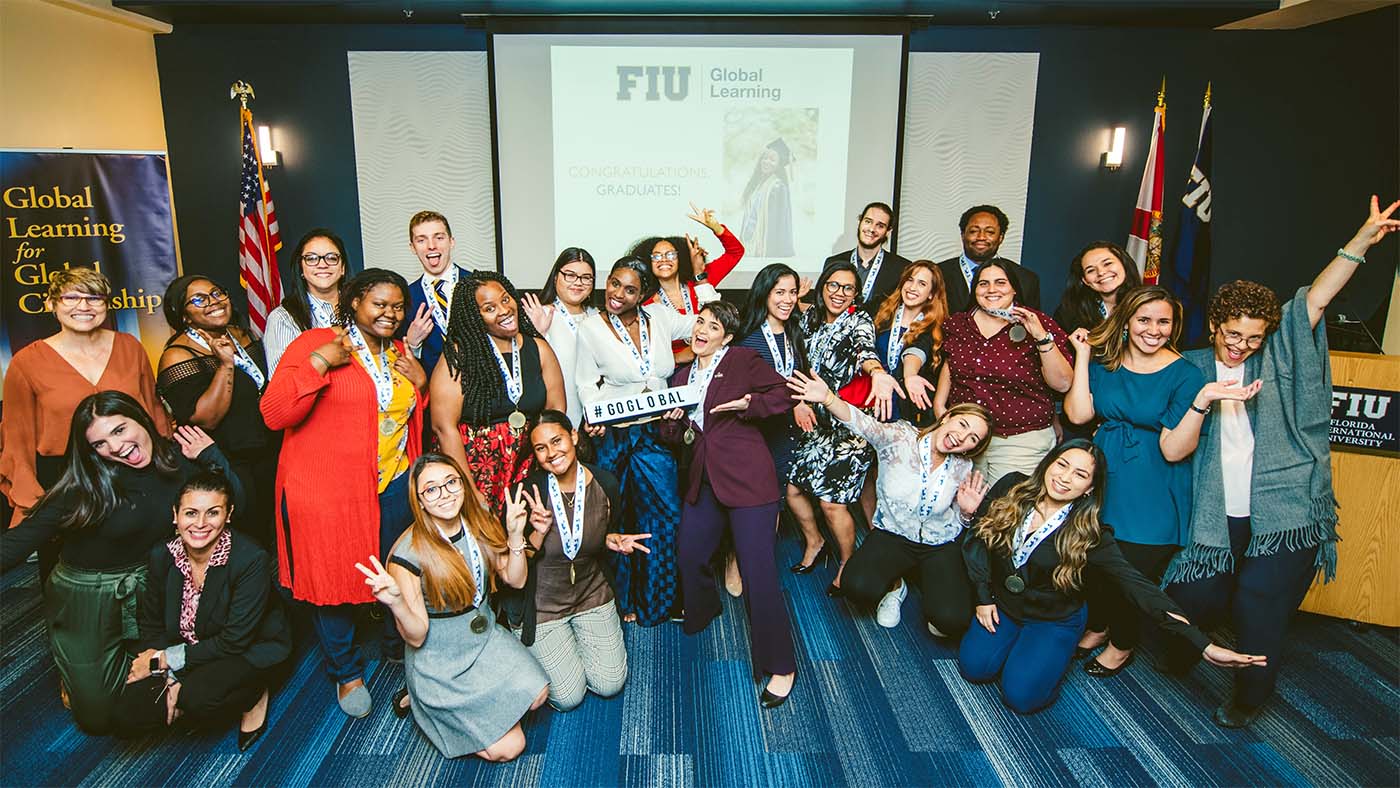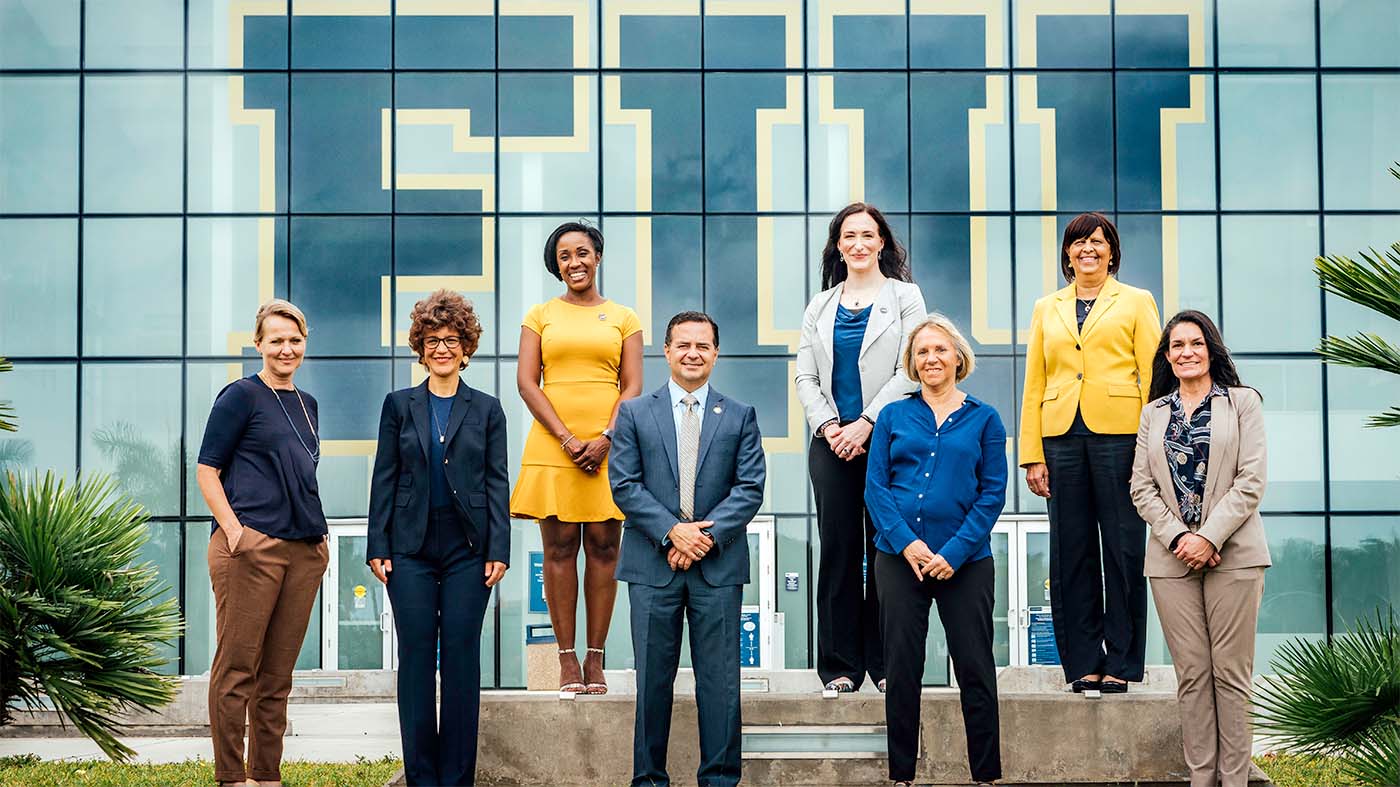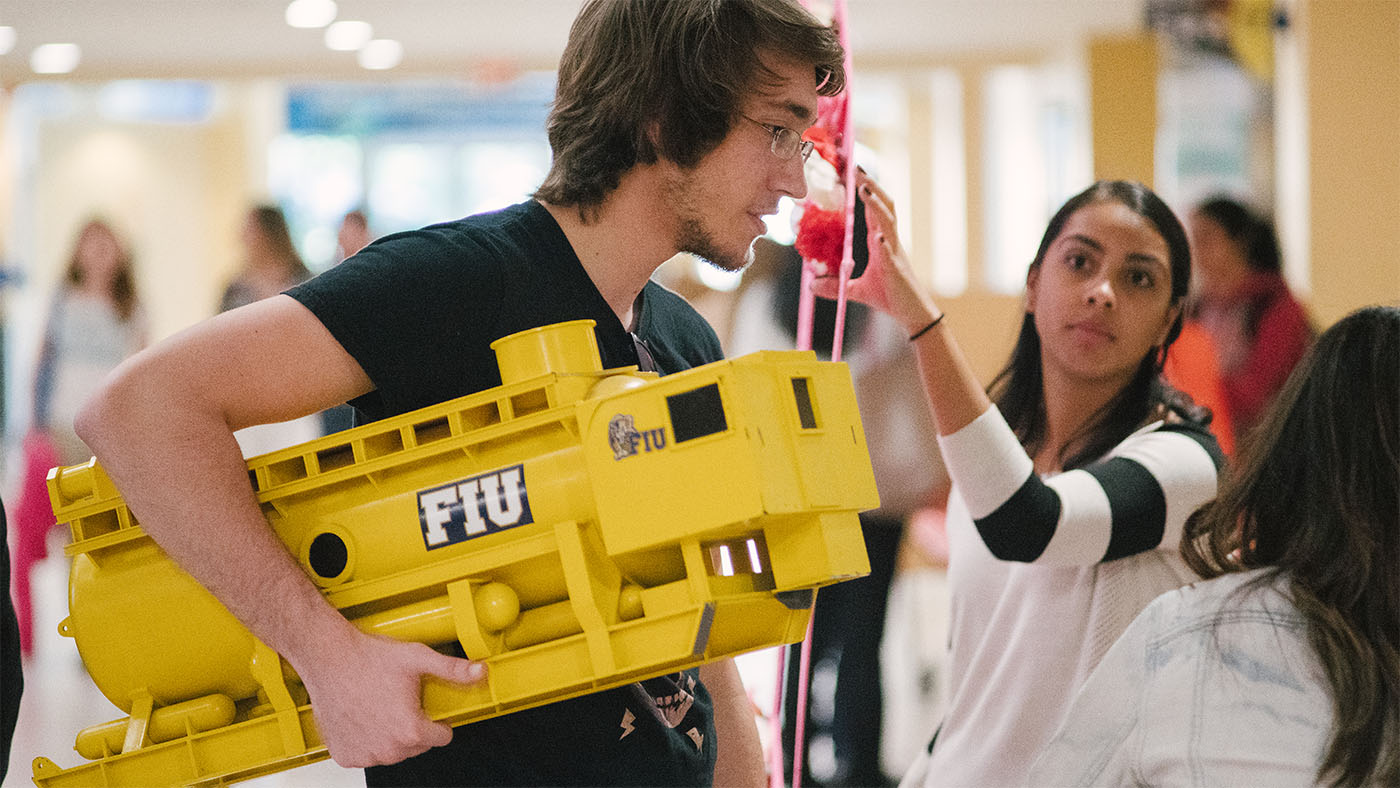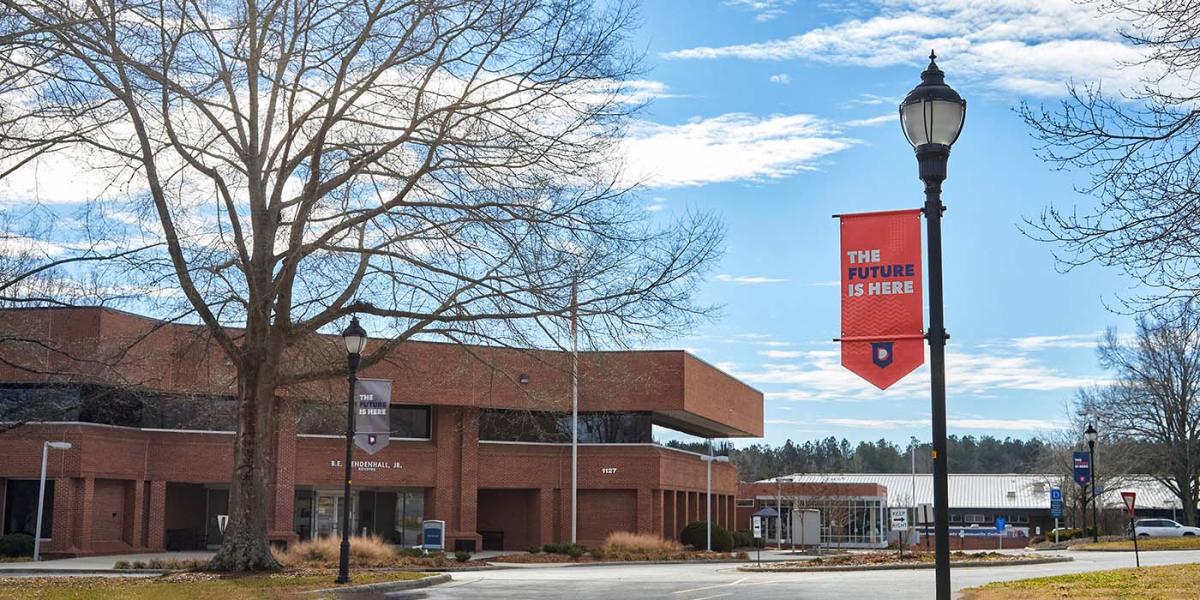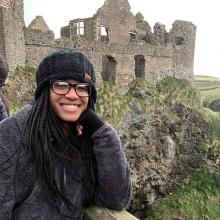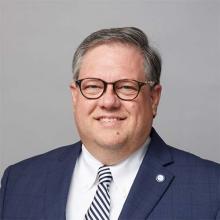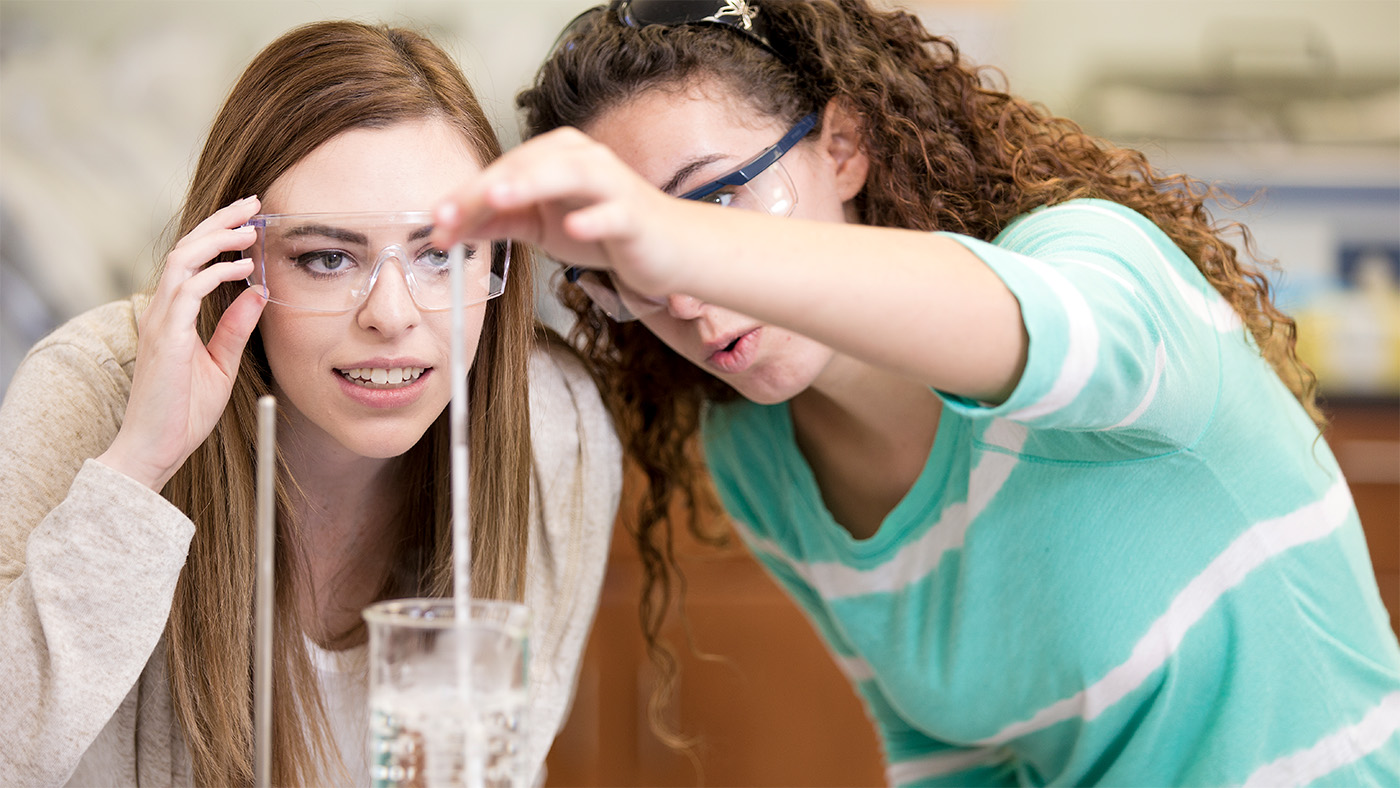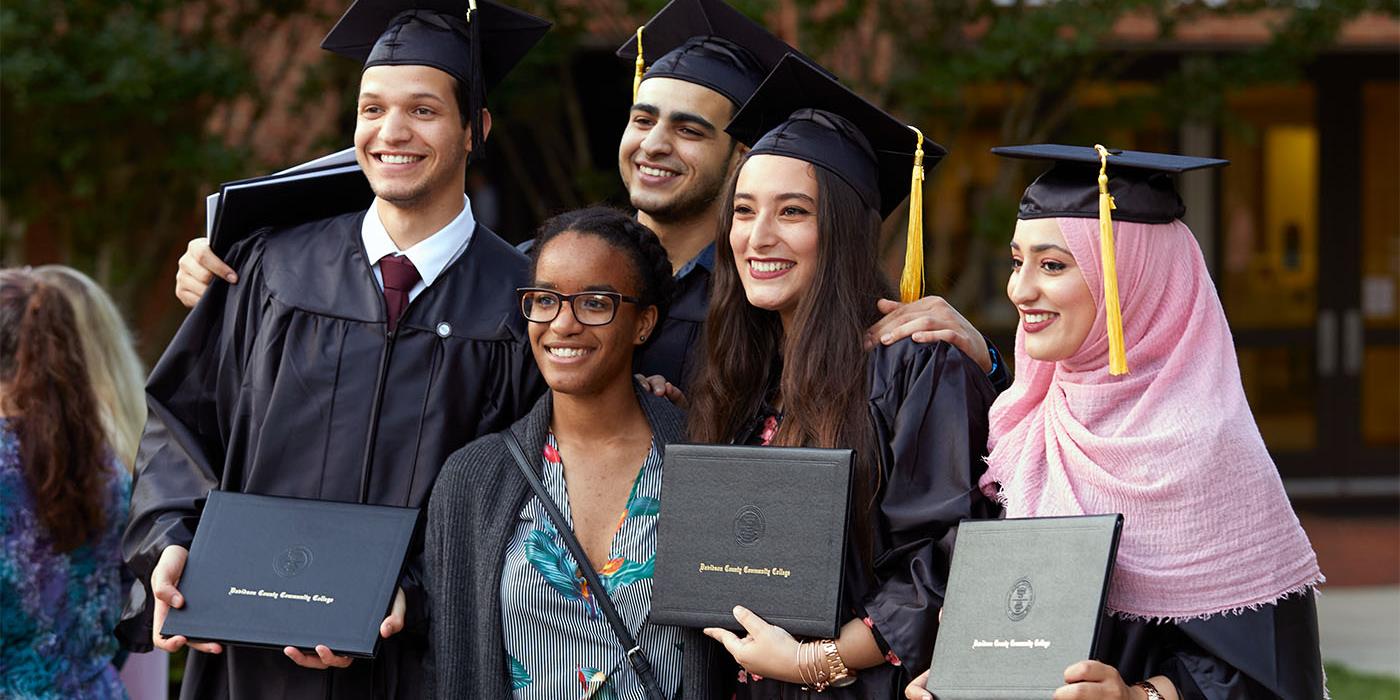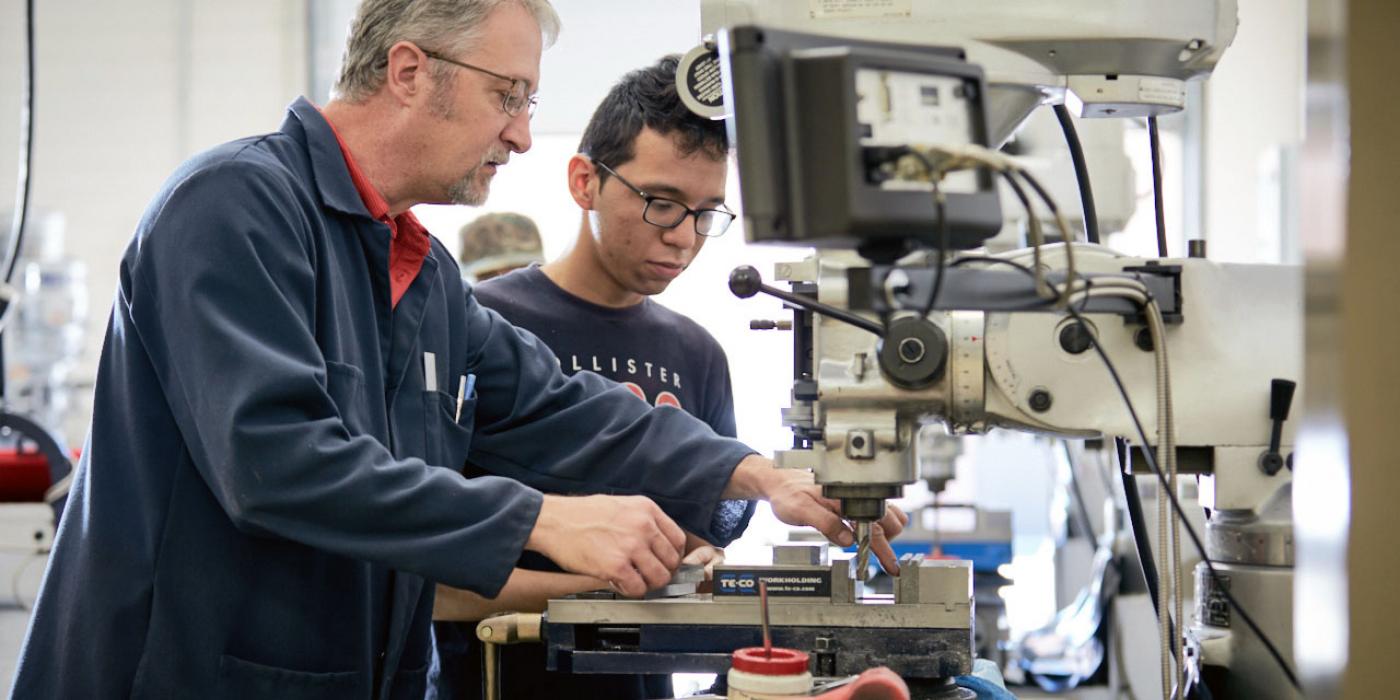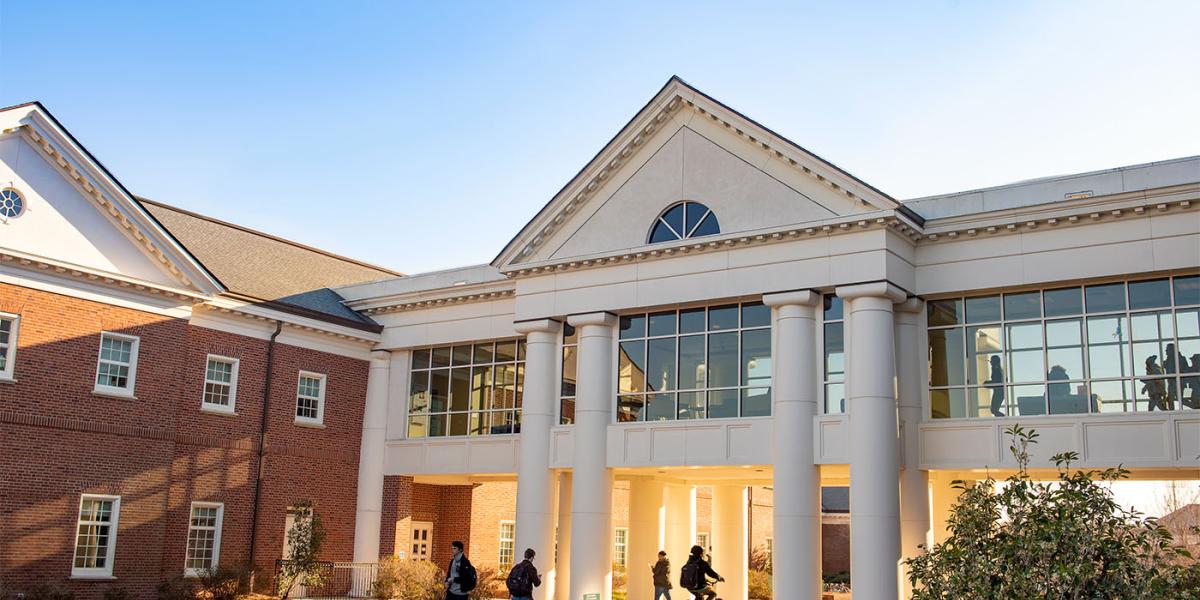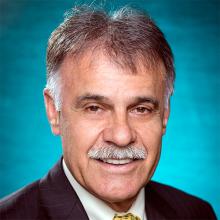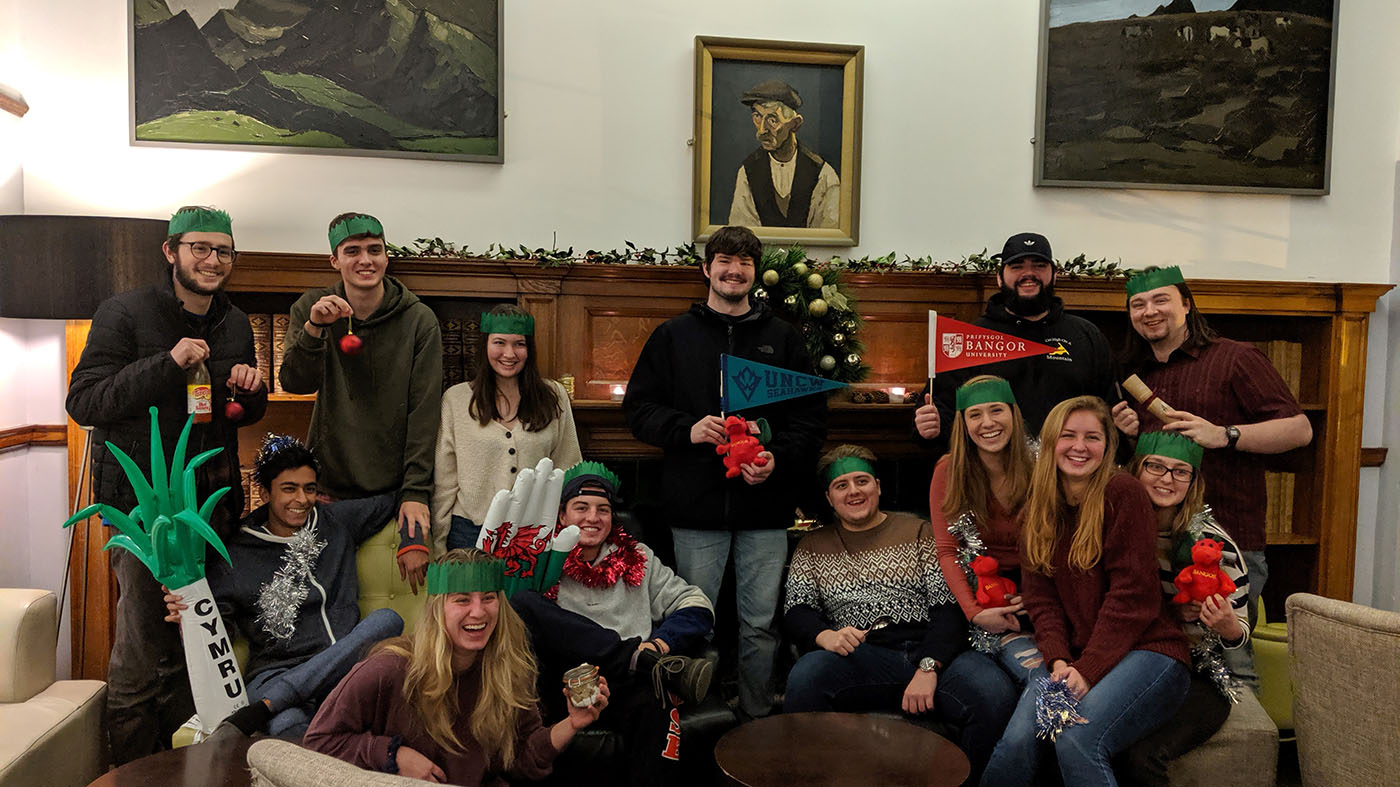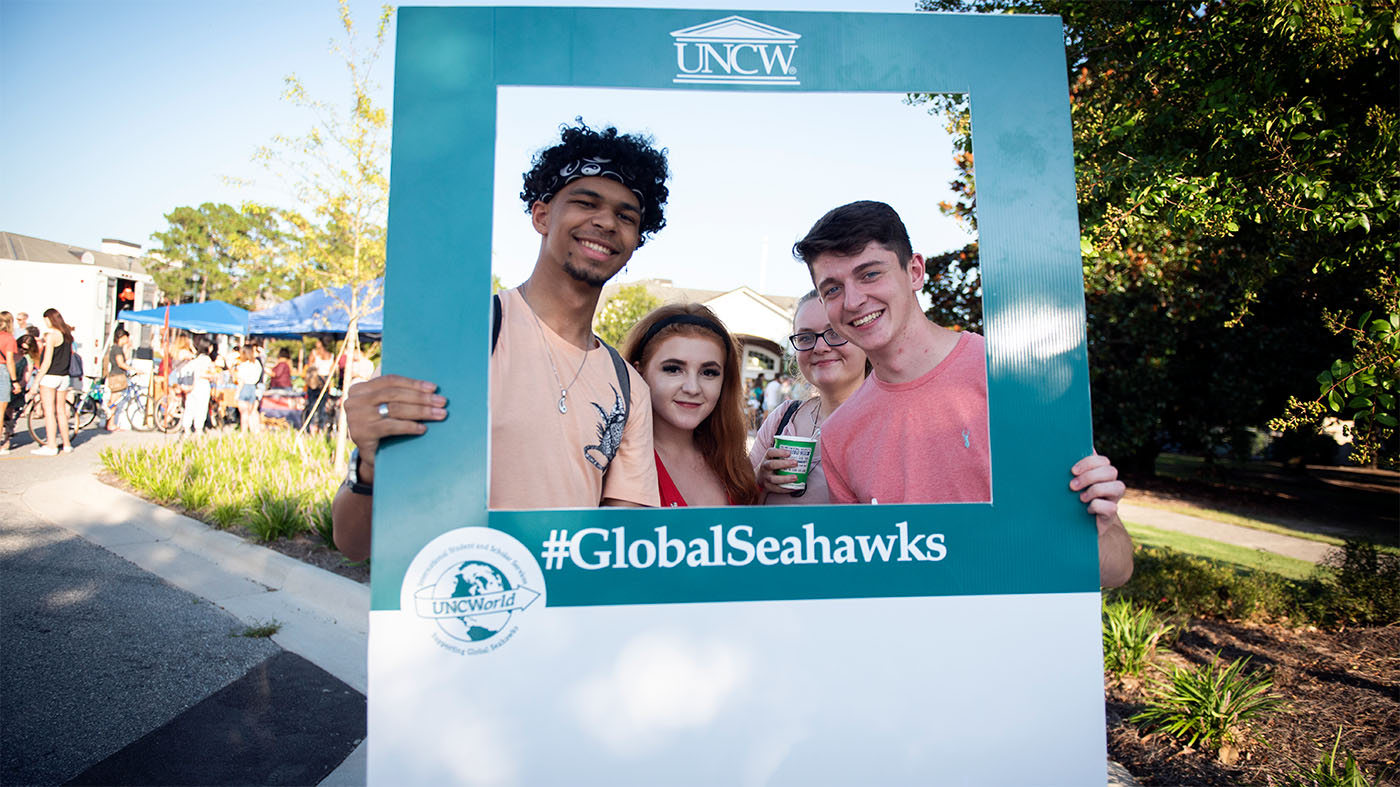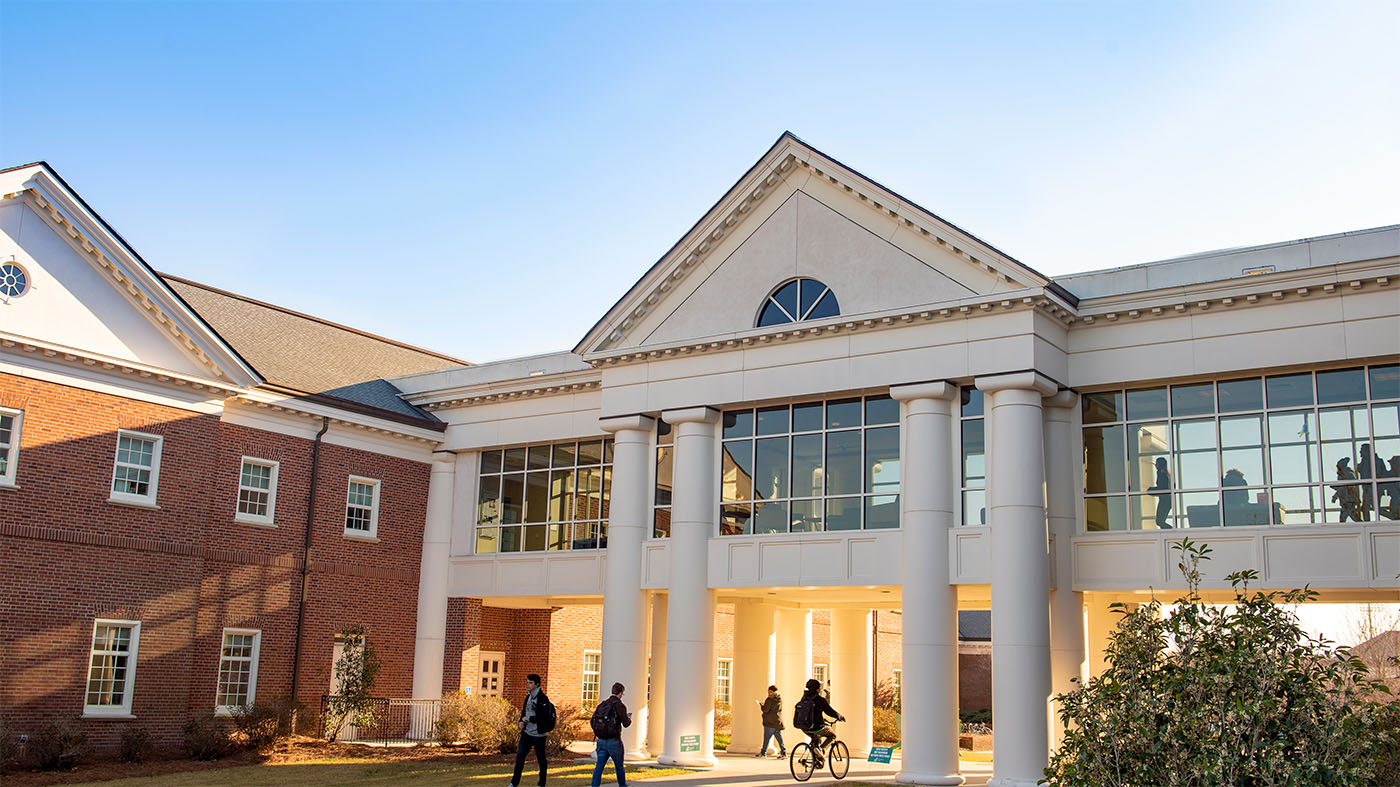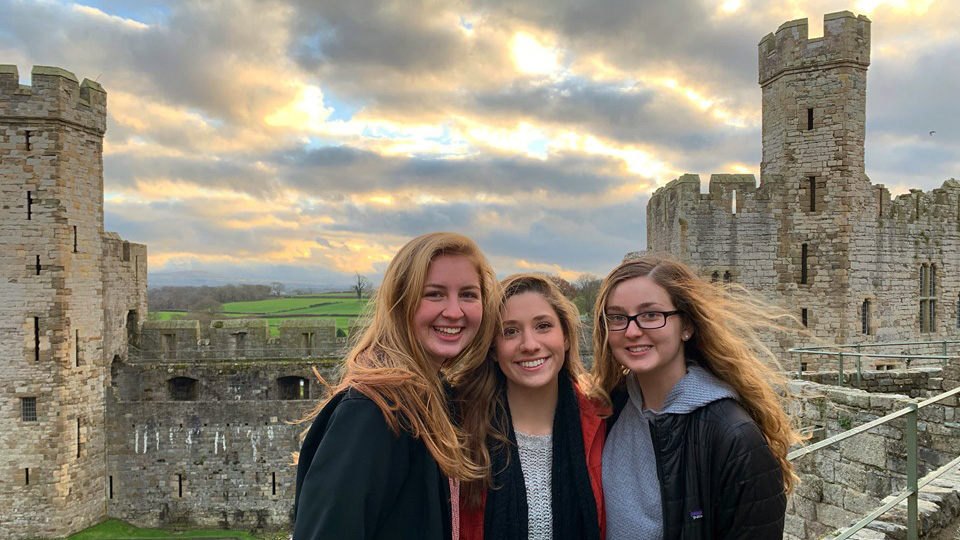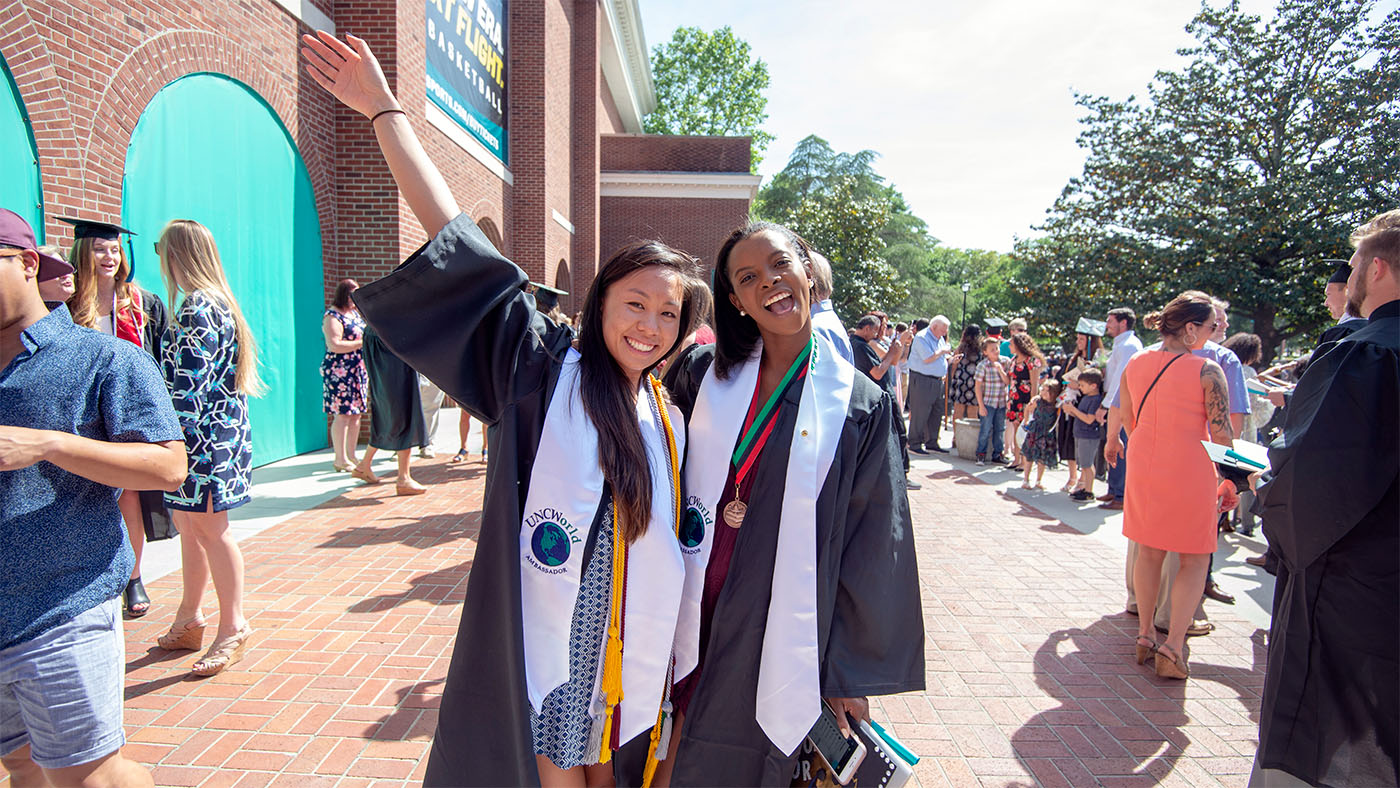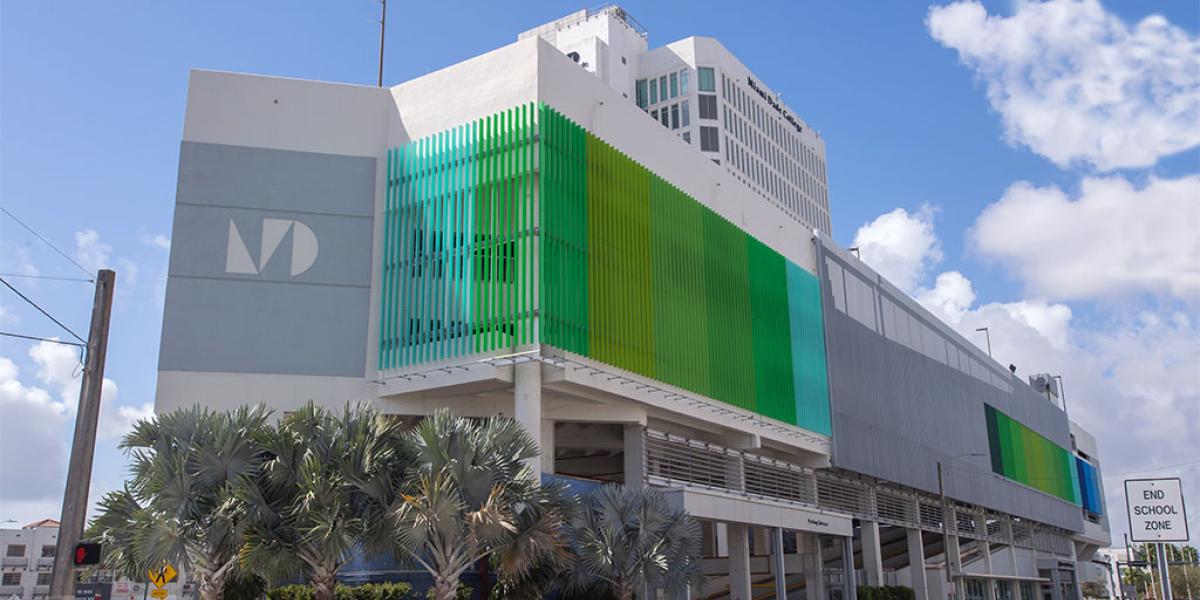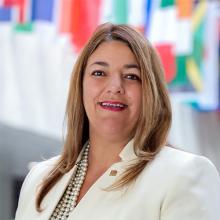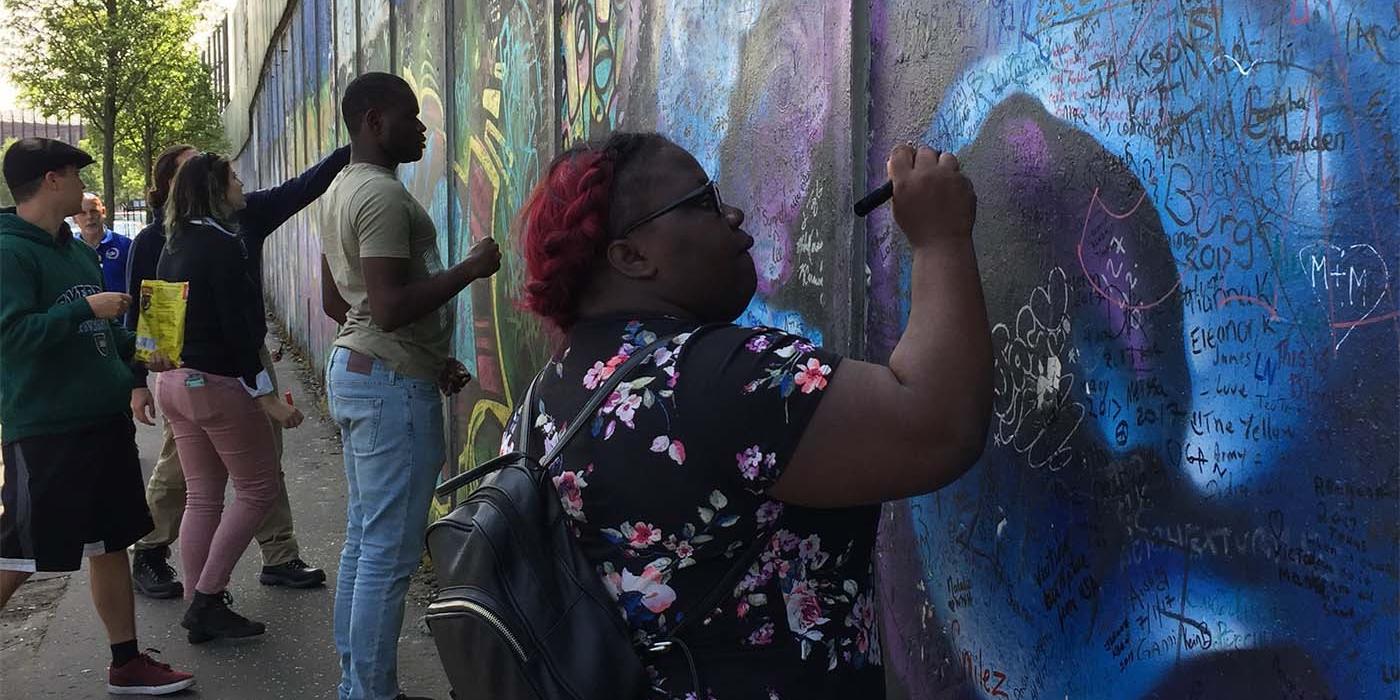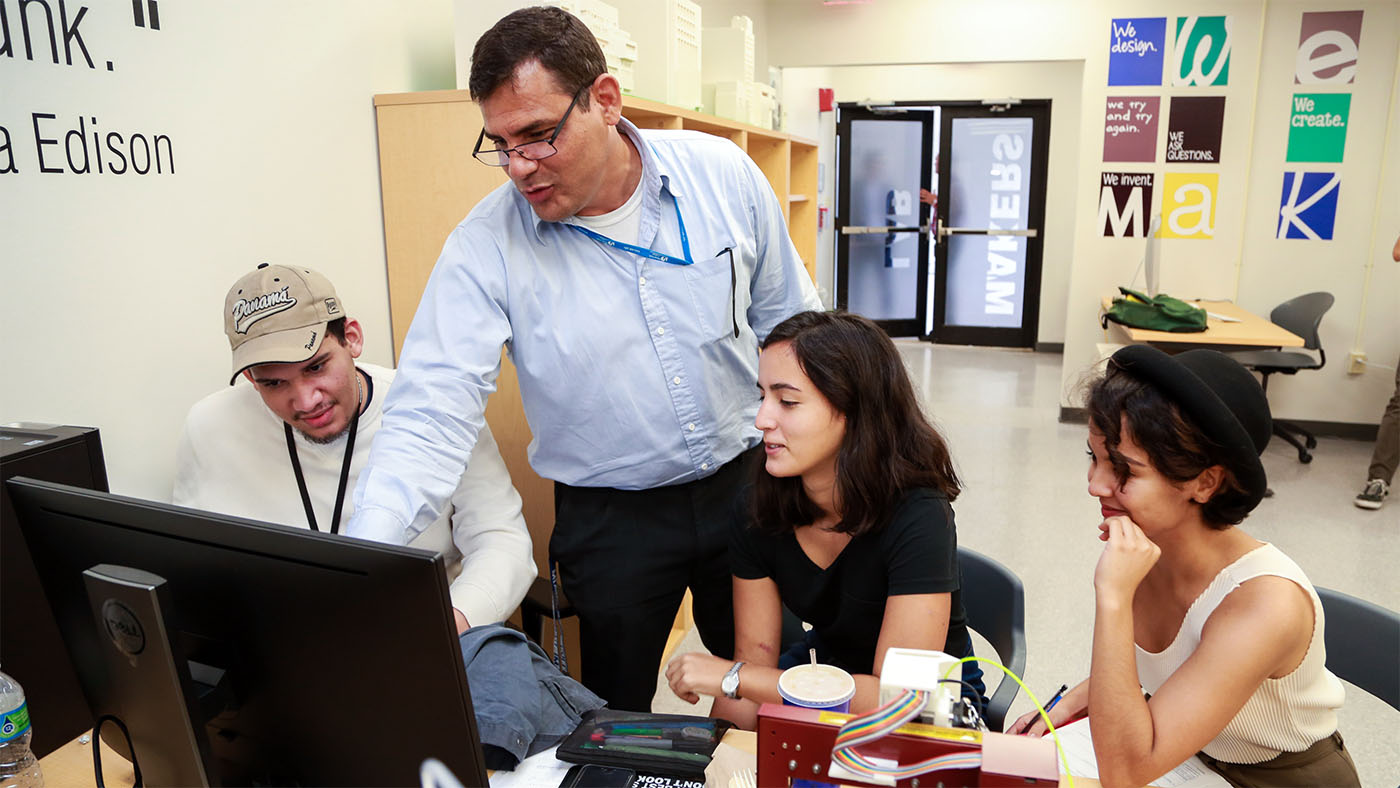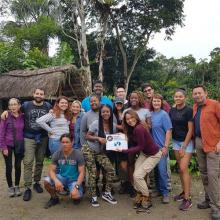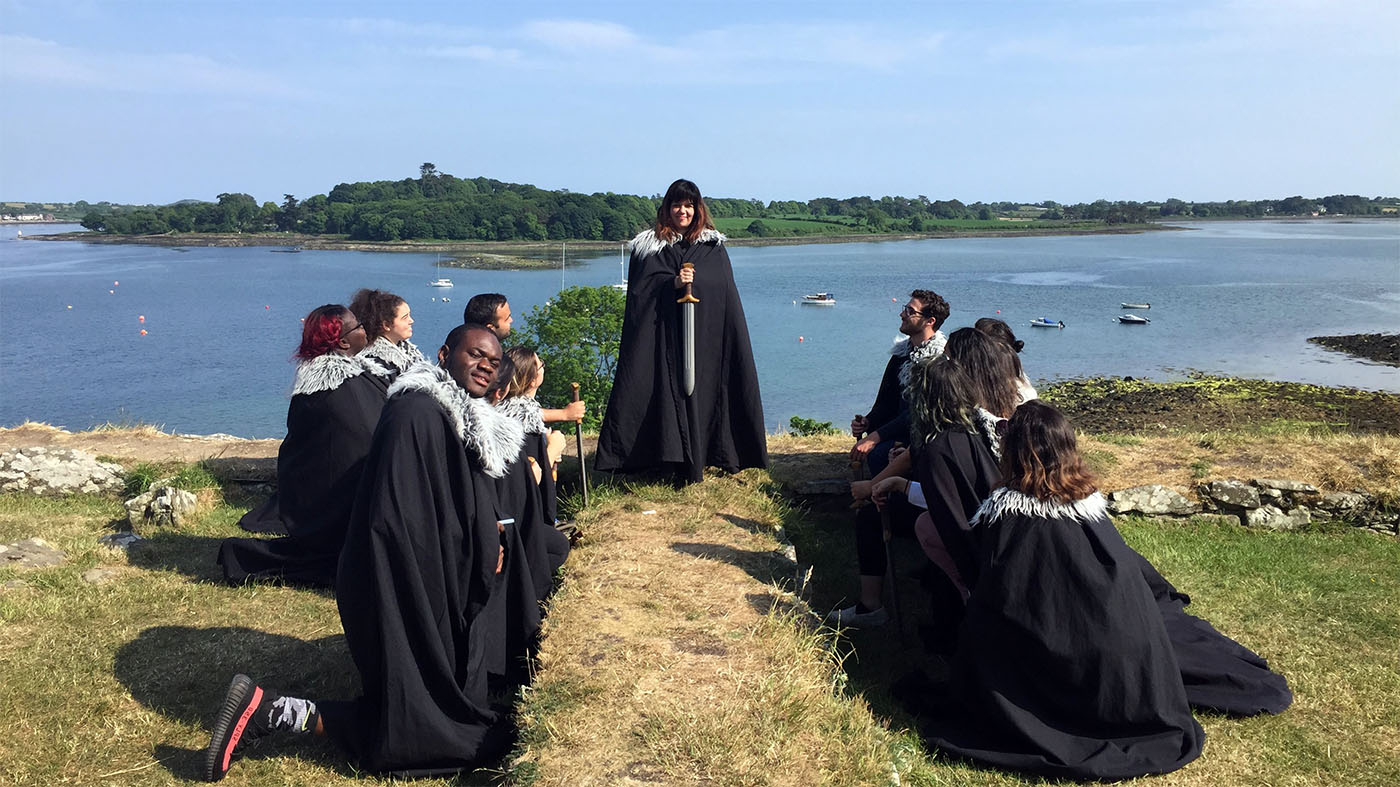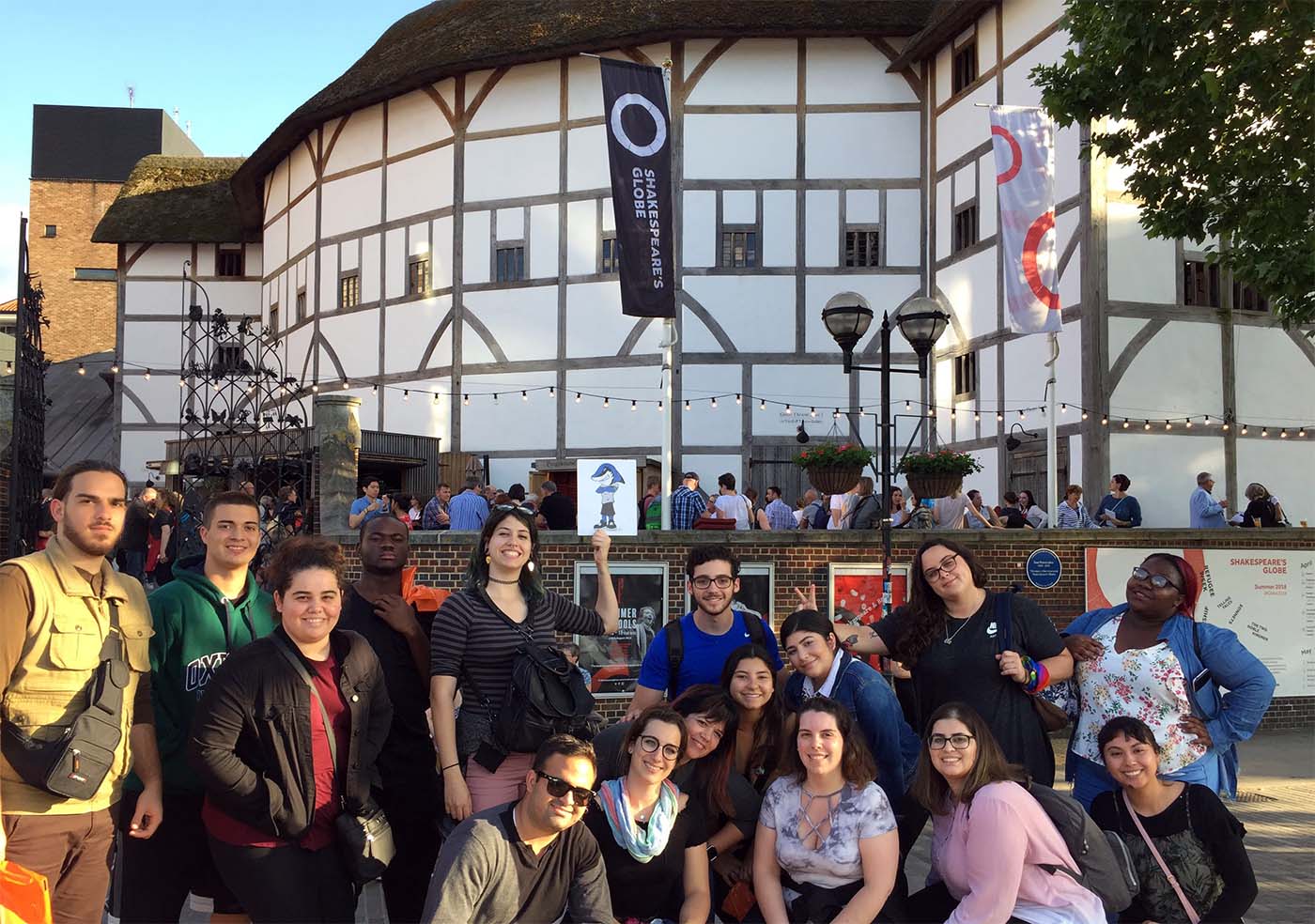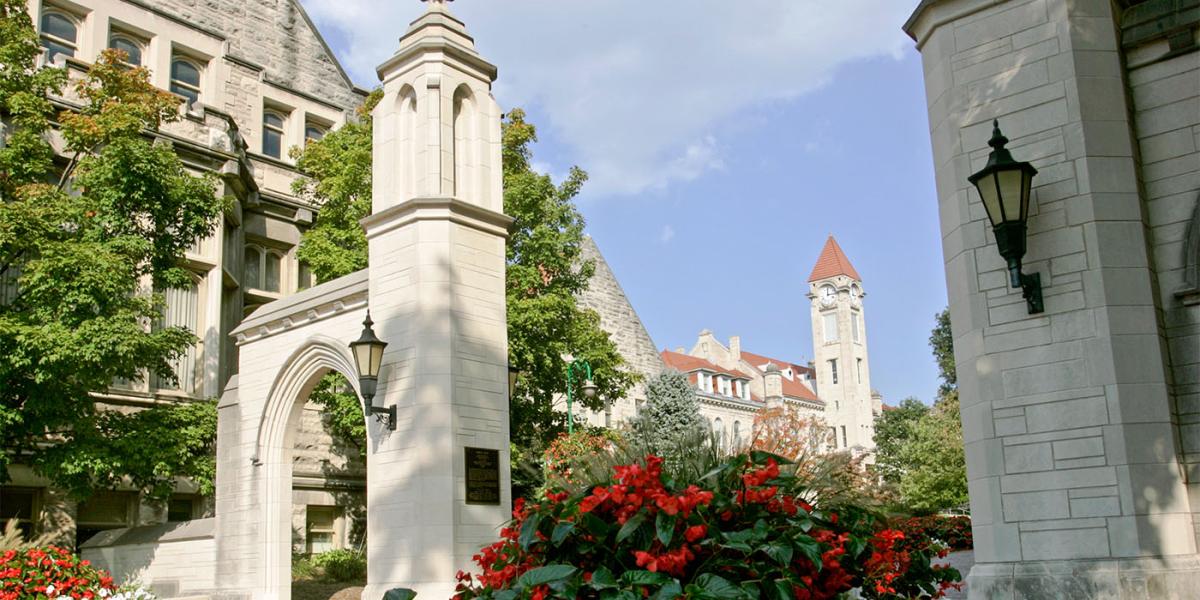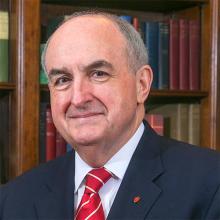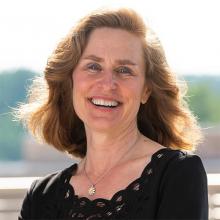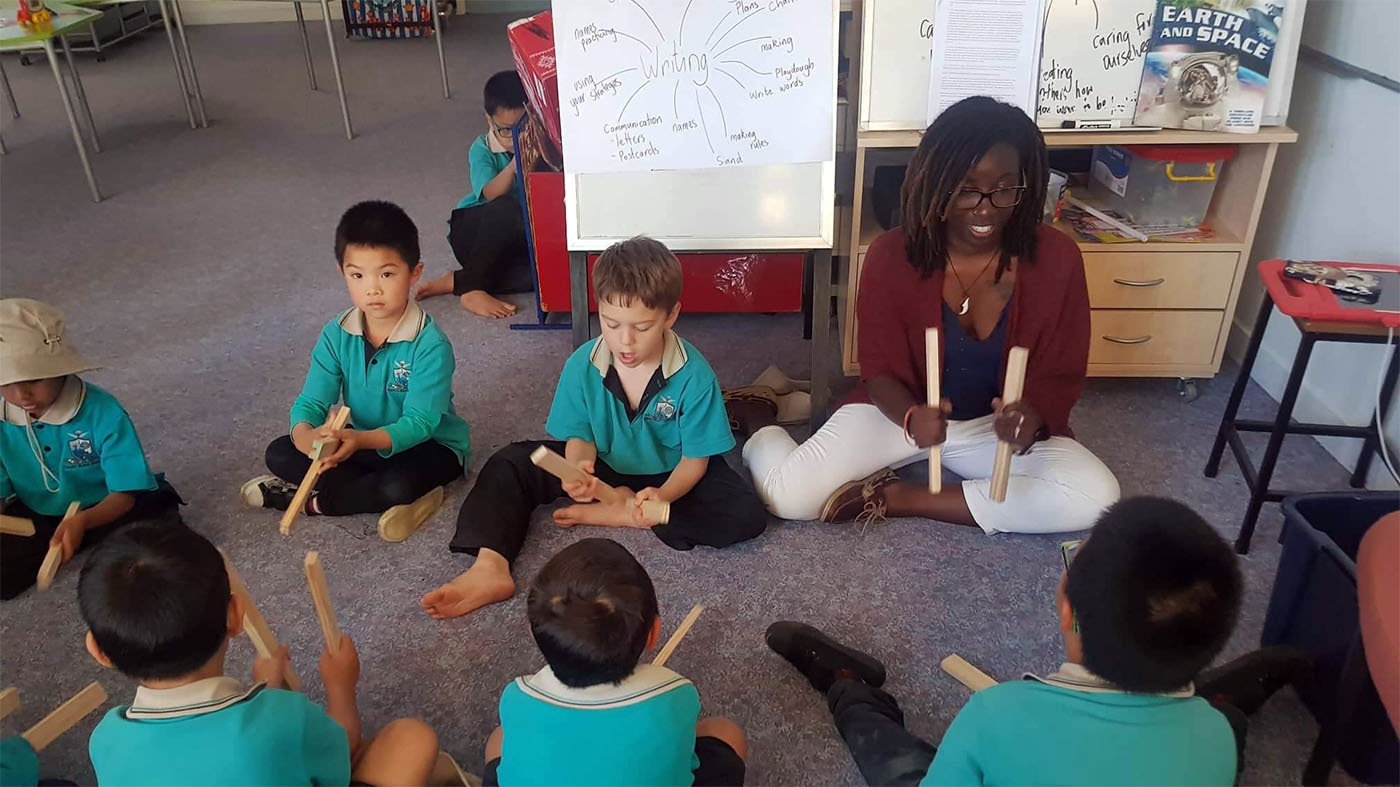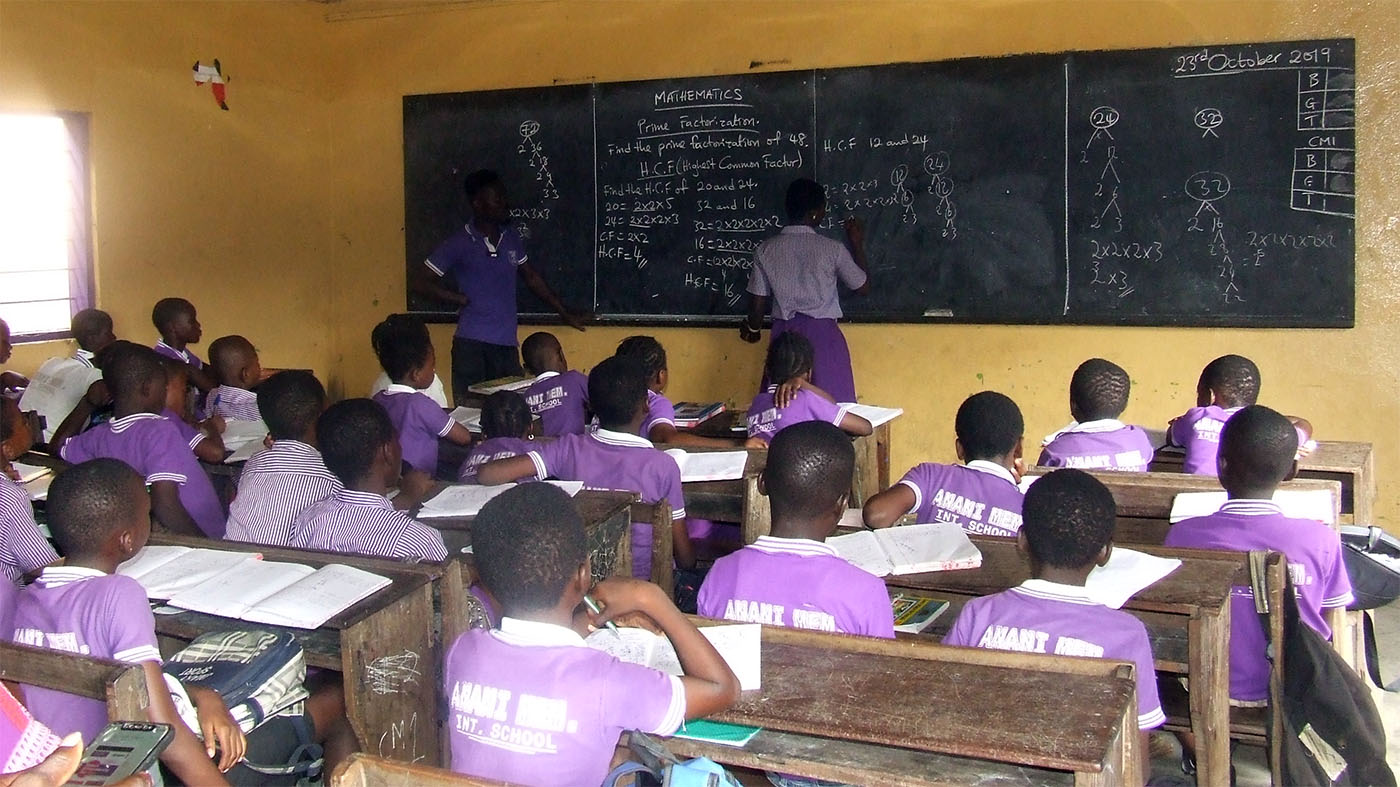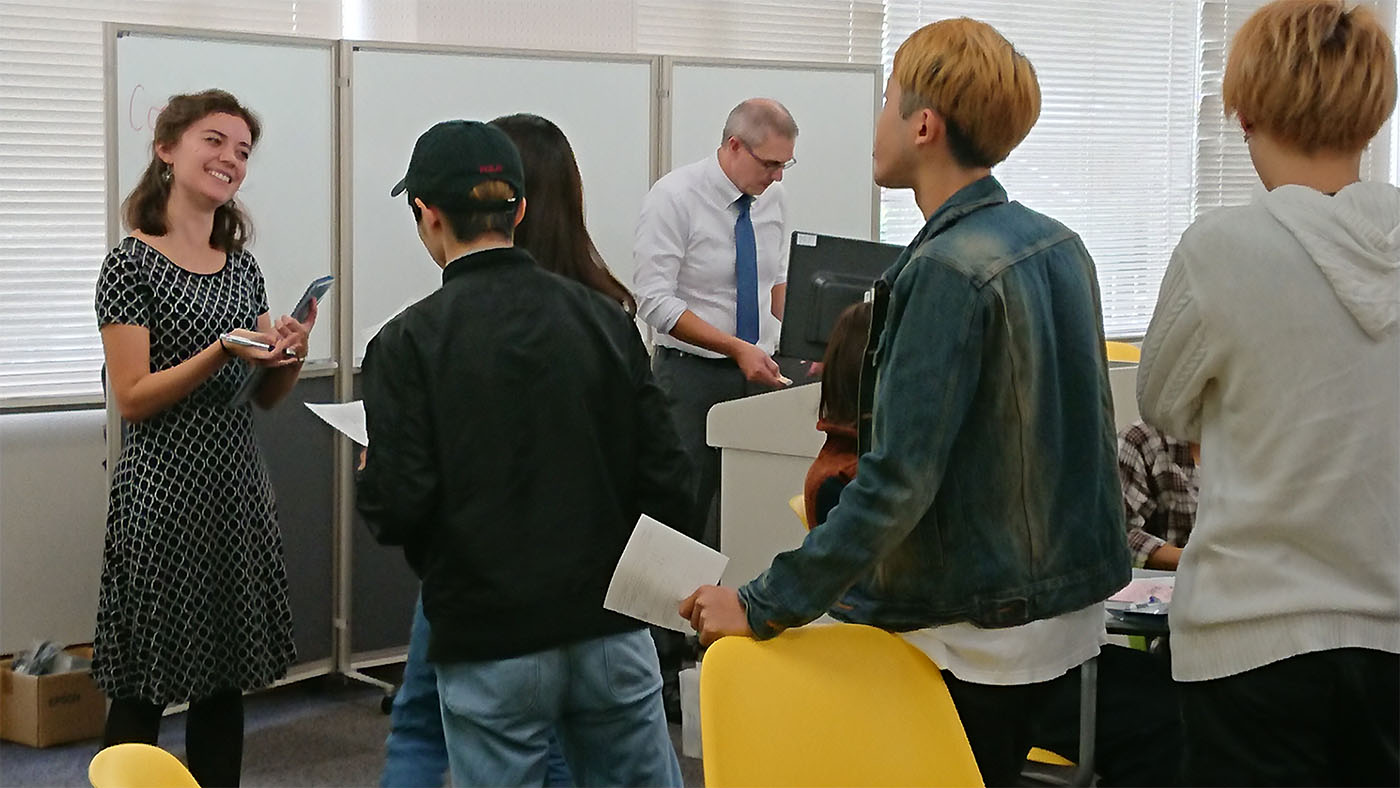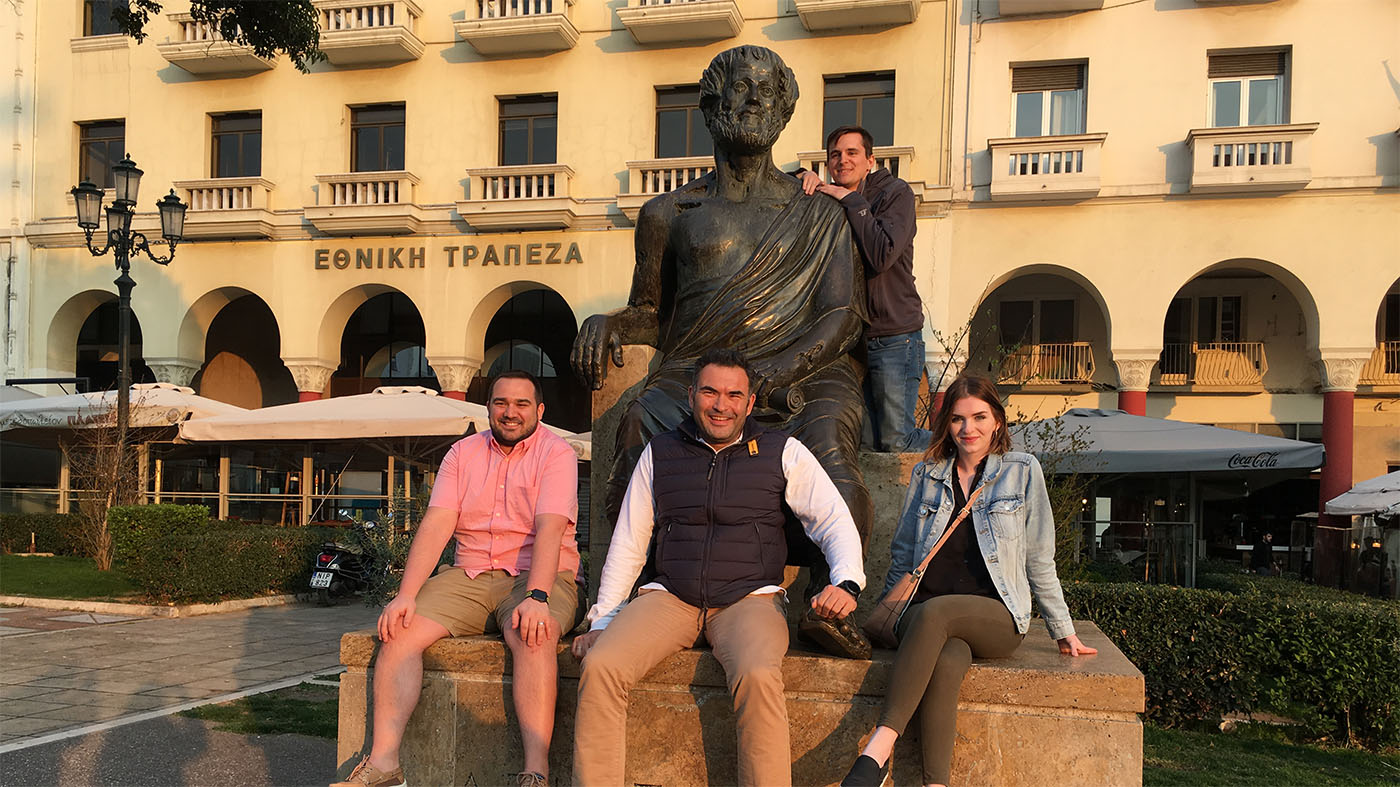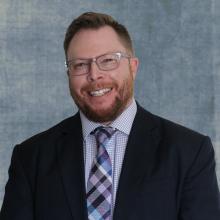2021 Comprehensive Florida International University
Founded in 1972, Florida International University (FIU) is Miami’s first and only four-year public research university. A designated Hispanic-serving institution, FIU currently serves more than 58,000 undergraduate and graduate students, including 4,000 international students and more than 37,000 Hispanic students (66 percent of the student body). The university promotes global learning throughout the curriculum for all undergraduates, international research opportunities, and strong partnerships abroad. Building on the strategic efforts to internationalize over the past decade, the new Global Strategy 2025 will also help the university leverage its existing relationships around the world.
Ana Rojas, MS, never imagined she would become an expert on invasive species—particularly when those invaders are 3,000-pound mammals with an affinity for the water. When she was a graduate research assistant at FIU, Rojas traveled to the Magdalena basin in central Colombia to study the social and ecological impacts of hippos introduced by narcotrafficker Pablo Escobar.
“We call it ‘hippo heaven,’” says Rojas, who now works as a research development officer at FIU. “They have no natural predators, and they’re multiplying at an unprecedented rate. And the people [of the region] actually love them, even though they could become a really bad threat to the ecology of this system.”
Rojas started at FIU as an undergraduate and then stayed to earn a master’s degree in environmental studies. In addition to studying hippos, she did her master’s thesis on arapaima, a giant freshwater fish that lives in Colombia’s Amazon basin.
Her research abroad was about more than just academics. She was able to return to the country that she fled as a child. “I feel extremely privileged and very happy because I got to kind of reconnect with the country that I was born in,” she says.
Rojas is one of the many students who have benefitted from the university’s engagement around the world. Rojas credits the faculty she worked with at FIU for her interest in international work. She wants to pursue a doctorate eventually and possibly do conservation and restoration work in the United States and Latin America, including in Colombia. “I like making those connections and seeing how my two countries can work together,” she says.
An International Beginning
One of the guests of honor and the keynote speaker at FIU’s groundbreaking in 1971 was U Thant, a Burmese diplomat who served as the secretary-general of the United Nations from 1961 to 1971. The ceremony was held at the base of an air traffic control tower, a remnant of the campus’s former use as an airport, which served as the university’s very first building. Today, the tower, situated in the center of campus, houses FIU’s Office of Veteran and Military Affairs. Current FIU President Mark B. Rosenberg, PhD, has commissioned a bust of Thant, who received FIU’s first honorary doctorate degree, to commemorate his presence at FIU’s groundbreaking.
When FIU first opened its doors to students in 1972, its founding goals were educating students, enacting service to the community, and fostering greater international understanding. “We have had the mission to foster greater international understanding since our founding, [and] we’re still delivering on that today,” says Birgitta Rausch-Montoto, MS, director of global strategy and faculty success.
Rosenberg, who began his career at FIU in 1976 as a political science professor, was involved in some of FIU’s earliest international endeavors, such as the establishment of the Kimberly Green Latin American and Caribbean Center (LACC) in 1979. He says that the center’s activities slowly shifted from language and area studies to a broader framework focused on global awareness.
“It provided us a more systematic framework for infusing more cosmopolitan thoughtfulness about what was going on in the world that went way beyond language and area studies,” Rosenberg says. “It was really remarkable how the faculty were willing to go beyond narrow boundaries and try to find ways to infuse that thinking in classes way beyond the social sciences.”
Internationalization Through Accreditation
While FIU implemented some international initiatives throughout the 1980s, it was in the mid-2000s that the institution began reconsidering its approach to internationalization in preparation for its 2010 reaffirmation of accreditation through the Southern Association of Colleges and Schools Commission on Colleges, says Hilary Landorf, PhD, founding executive director of the Office of Global Learning Initiatives.
Reports from different units on campus showed that global learning was a focus for the institution, but it was not evident in what students were experiencing in the classroom. At the same time, the university was going through a branding exercise, and surveys showed that campus stakeholders found diversity to be FIU’s greatest strength. As a designated Hispanic-serving institution, the university graduates more Hispanic students than any other university in the continental United States.
“There was this disconnect. We weren’t capitalizing on our diversity of the classroom,” Landorf says. “You have students from all over the world and first-generation students who have Hispanic and other backgrounds. Their knowledge, their capabilities, their skills weren’t being used in the classroom. And that led to Global Learning for Global Citizenship as an initiative.”
Landorf, who is a leading scholar of international education and coauthor of Making Global Learning Universal, copublished by NAFSA and Stylus, says that the Global Learning for Global Citizenship initiative consolidated disparate efforts to internationalize FIU. “Global Learning for Global Citizenship really focused all of us faculty, staff, students, and administrators on obtaining and internalizing our three global learning outcomes: global awareness, global perspective, and global engagement,” she says.
FIU adopted global learning, defined as the process of diverse people collaboratively analyzing and addressing complex problems that transcend borders, as the focus of its quality enhancement plan for reaffirmation of accreditation. As of 2010, all incoming freshmen are required to take two global learning courses, one general education class, and one upper-division class in their major area. In 2011, the requirement was extended to incoming transfer students.
Rausch-Montoto says that the internationalization of the undergraduate curriculum was a “real game changer” in terms of wider efforts to internationalize the institution.
The university currently offers more than 250 global learning courses throughout the curriculum in all 72 of its undergraduate academic programs.
“It doesn’t matter if you’re an engineering major or a business major; [global learning] is built into these courses,” Rausch-Montoto says.
To complement global learning in the curriculum, FIU offers a set of co-curricular programs that provide students with the opportunity to practice what they learn in the classroom. For instance, the Global Learning Medallion program engages students in high-impact practices, such as globally focused internships, fellowships, and research projects. The Millennium Fellowship program enables students to design and implement projects that address the Sustainable Development Goals in their local campuses and communities, and the Peace Corps Prep program prepares them to serve abroad. The Office of Global Learning Initiatives manages all of these programs, and they all have similar missions: to engage students with collaborative local and global problem-solving.
Global Learning For Faculty And Students
As of 2021, FIU trained more than 1,100 faculty to turn their classes into global learning courses. Hands-on interdisciplinary, interdepartmental workshops enable faculty to develop, revise, and lead courses, activities, and assessments that address FIU’s global learning outcomes of global awareness, perspective, and engagement. Faculty may receive a stipend as an incentive for attending these workshops and infusing global learning elements in their courses. All courses in global learning are reviewed every 3 years to ensure fidelity to the global learning elements is retained, Landorf says.
Alok Deoraj, PhD, is an environmental health science professor in the Robert Stempel College of Public Health and Social Work. Originally from India, he was immediately intrigued by the Global Learning for Global Citizenship initiative. “I was looking for a venue to share my experiences with students,” he says.
He integrated global learning elements into his general education public health class, Health Without Borders, which explores the interrelatedness of social, economic, demographic, and cultural factors affecting health. For instance, Deoraj says that during the pandemic, he broke up his students into groups by country and asked them to research how each country managed its COVID-19 response, looking at factors such as mask mandates and quarantine regulations. Then the groups made recommendations based on their country’s local situation.
“I have found that it’s very much eye opening for [students to see] that there is a similar problem on the other side of the world, but they have a different way to tackle it,” Deoraj says.
Beyond enhancing undergraduates’ studies, participation in global learning courses can help spark interest in international careers. When Camila Uzcategui, PhD, started as an undergraduate at FIU, she thought she wanted to be a doctor because it was a way she could have a positive impact on her community. But taking a global learning medical anthropology class broadened her perspective. “I think the global learning curriculum really allowed me to understand medicine from a different perspective,” she says.
Uzcategui ended up double majoring in physics and anthropology. “It really reshaped my whole career,” she says.
Instead of becoming a medical doctor, she recently earned a PhD from the University of Colorado-Boulder in material science and engineering. Her research focuses on biomaterials and increasing access to medical devices in underserved communities.
“When you’re seeing all these things occurring in the world, whether it’s a global pandemic [or other] things, FIU global learning gives us the tools to understand them and to be able to draw connections between them,” she says.
Consolidation of Global Efforts
To uncover and visualize the breadth and depth of internationalization activities, FIU published its first biannual Global Programs Summary infographic, which summarized key metrics, quantified outcomes, and created awareness of its successes. During the review process, it became evident that multiple departments were duplicating processes and procedures because they were working in isolation. The same audit uncovered many hidden pockets of specialized internationalization expertise, such as more than 40 Fulbright program alumni across campus.
To consolidate institutional internationalization efforts, in 2015 Provost and Executive Vice President Kenneth G. Furton, PhD, created the Office of Faculty & Global Affairs. Three years later, the office was rebranded as FIU Global. The reorganization brought together FIU’s Offices of Study Abroad and International Student and Scholar Services, the English Language Institute, and FIU Genoa in Italy.
Rausch-Montoto says that FIU Global’s commitment to documenting progress, reflecting on results, and using them to map more efficient and effective routes has strengthened the institution’s comprehensive internationalization efforts.
“While we’ve [always] had a lot of different units that worked on international education, we never had an umbrella office serving as a clearinghouse and working toward synergizing all of our efforts,” says Rausch-Montoto, who heads the FIU Global unit. “We have so many administrative leaders who have deep experience and knowledge in regards to internationalization. We have a lot of faculty who do brilliant things. And so nobody had ever harvested that across campus to get us together and say, ‘If we work together, we can do even more.’”
Internationalization Via Programs and Partnerships
In addition to FIU Global, FIU has a number of programs and partnerships that contribute to wider campus internationalization efforts, including the LACC. Established in 1979, the center continues to serve as a hub for FIU’s extensive engagements in Latin America and the Caribbean.
Luis Guillermo Solís Rivera, PhD, former president of Costa Rica, is the interim director of LACC. The center currently has approximately 200 affiliated faculty across the university. Solís Rivera says that the center’s areas of expertise include migrations, security, and gang violence in Central America and public health in Puerto Rico with a focus on HIV issues and other infectious diseases. As a Title VI center, LACC also does outreach and instruction in local schools in Miami.
Extending its global focus to the medical field, FIU has operated the Accelerated Option Bachelor of Science in Nursing (AO BSN) for physicians educated abroad since 2001. It is the only program of its kind in the United States, says Yhovana Gordon, DNP, associate dean of academic affairs for the Nicole Wertheim College of Nursing and Health Sciences. The program was created to provide an educational pathway for medical doctors who were educated abroad but unable to practice in the United States, as well as to help address a nursing shortage in South Florida.
Moises Dobarganes, NP, came to the United States from Cuba at the age of 30. Although he had been trained as a medical doctor in Cuba, he was unable to meet all the requirements to practice as a doctor in the United States. Then he found his way to the AO BSN program, which served as a stepping-stone to becoming a nurse practitioner.
“It changed the way that I saw medicine and the opportunities to work with the community and interact with people in a different way,” Dobarganes says.
A final example of the institution’s excellence in global programming is a hospitality degree program with Tianjin University of Commerce (TUC) in China that FIU has operated since 2006. It is a 2+2 program, with the first 2 years taught by TUC faculty and the final 2 years taught entirely in English by FIU faculty.
“From the get-go, we established the program so that the students in China will get exposure and be taught by U.S. faculty,” says Michael Cheng, PhD, dean of the Chaplin School of Hospitality and Tourism Management.
Chinese students can also choose to finish their fourth year in Florida or come for a one-year master’s program. In addition, U.S. students studying hospitality can study abroad for a semester in Tianjin.
The program has graduated 2,700 students and is the only English-speaking hospitality program in China, according to Cheng.
Internationalization to 2025 and Beyond
The next step for internationalization at FIU was the launch of the Global Strategy 2025 plan in summer 2020 with three priority areas: student, faculty, and institutional success. The global plan is the result of the Global Strategy Committee that was convened by Furton in 2018 with the goal of guiding the institution toward more focused, strategic global engagement in alignment with institutional priorities. Representatives of all colleges and business units were included on the committee.
“It’s been a very intentional university-wide effort,” Rausch-Montoto says. “We’ve done a lot of legwork on identifying where we are, what we are doing, and where we are successful.”
For FIU Global, one area of focus is the establishment of world centers in strategic locations. “The idea is to really have a much more robust intentional presence overseas that allows our faculty and our staff and our students to have a deep connection,” Furton says.
FIU plans to open its first world center in Colombia in the near future, with others to follow in places such as Asia and the Middle East, Furton says. He says that the partnership with TUC in China is a model for future world centers where FIU can tap into its top academic programs. “We’re trying to replicate that in as many as a dozen or more locations around the world,” Furton says.
He added that Global Strategy 2025 and the world centers build on the previous work that has been done by FIU Global. “Having FIU Global has been transformational in the sense that we really didn’t realize everything that was going on at the university until we started doing this,” Furton says. Having a centralized unit focused on global engagement has “really allowed us to crystallize our plan for these world centers [and identify] where it makes the most sense to be.”

